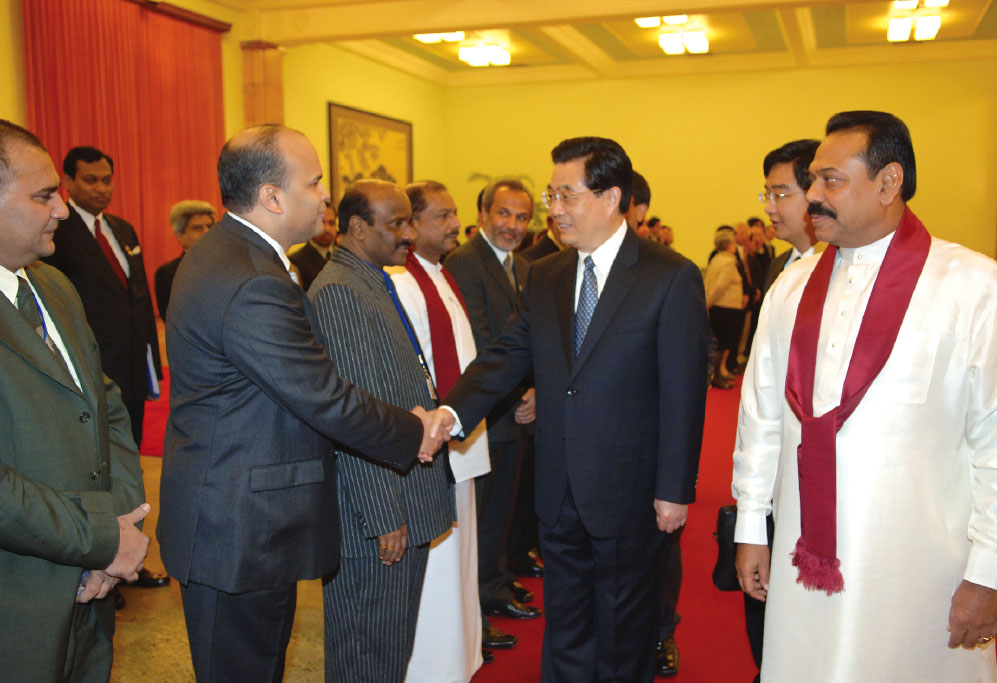Milinda Moragoda, Sri Lanka’s new High Commissioner-designate to India, called the provincial councils system in the island “superfluous, expensive, divisive,” and said that it is “ fraught with inefficiency,” in a recent interview to The Hindu.
The provincial council's system came into existence following an agreement between Indian Prime Minister Rajiv Gandhi and Sri Lankan President J.R. Jayawardena in 1987, known as the Indo-Lanka Peace Accords.
For at least the past two years, Sri Lanka's nine provincial councils have been defunct pending an election. Commenting on this, Moragoda noted that whilst there was "no threat" to the provincial councils, "elections to the councils will have to wait until we have a consensus on a new electoral system".
Moragoda, who will assume duties in New Delhi later this month, authored a treatise on Indo-Lanka relations in which he laid out a roadmap for Colombo to improve bilateral ties with its northern neighbour.
Presented to Rajapaksa, the tract acknowledged a “trust-deficit” between the two countries and recommended ways to develop a “strategic” partnership from the current “transactional” engagement.
On the question of Sri Lanka’s Tamil population, however, the roadmap document is silent. India has repeatedly urged Colombo in the past to expedite post-war ethnic reconciliation in the island and restore full rights to the Tamils.
Moragoda said a political solution or post-war reconciliation must be “home-grown”. “A political solution is not all about laws and the Constitution,” he said.
He has previously served under both the United National Party (UNP) and the Sri Lanka Freedom Party (SLFP).
In the past, whilst serving as a negotiator during peace talks with the LTTE, Moragoda took credit for engineering the anti-LTTE Karuna paramilitary group and also claimed credit for the sinking of LTTE vessels during the peace talks.
Moragoda’s paper also recommended that Sri Lanka contribute a “sacred stone” from Nuwara Eliya to the construction of a Ram Temple in Ayodhya, in northern India. The temple construction is a highly controversial issue in India because it is being built at a site where a medieval mosque was located that was torn down by Hindu-nationalist fanatics in 1992.
Moragoda will be taking charge at a critical juncture in Indo-Sri Lanka bilateral relations. Earlier this year, Sri Lanka abandoned a trilateral joint project, along with India and Japan, to develop the East Container Terminal (ECT) of the Colombo Port.
Moreover, Tamil Nadu fishermen frequently come under fire from the Sri Lankan navy, suffering grave injuries and losses to property. Earlier this month, a fisherman from Nagapattinam was shot in the head by the Sri Lankan navy near Kodiyakarai.
We need your support
Sri Lanka is one of the most dangerous places in the world to be a journalist. Tamil journalists are particularly at threat, with at least 41 media workers known to have been killed by the Sri Lankan state or its paramilitaries during and after the armed conflict.
Despite the risks, our team on the ground remain committed to providing detailed and accurate reporting of developments in the Tamil homeland, across the island and around the world, as well as providing expert analysis and insight from the Tamil point of view
We need your support in keeping our journalism going. Support our work today.
For more ways to donate visit https://donate.tamilguardian.com.


